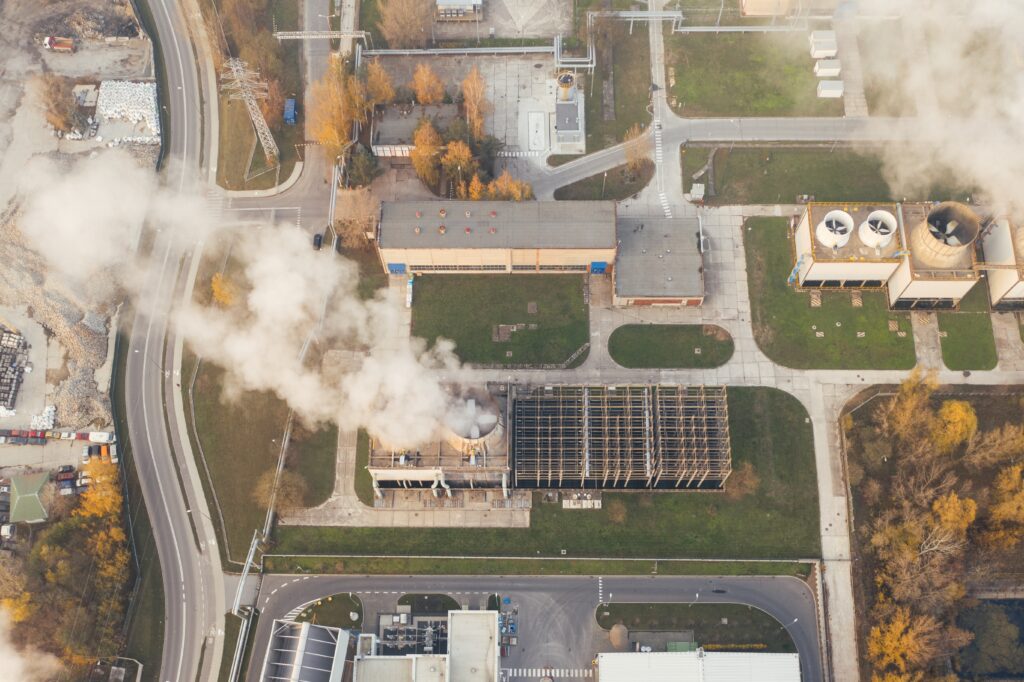Air pollution is a serious and growing concern that has both short-term and long-term effects on human health and the environment. According to the World Health Organization (WHO), air pollution causes an estimated 7 million premature deaths worldwide each year. This alarming statistic highlights the need for a deeper understanding of the impact of air pollution on human health and the environment.
The sources of air pollution are diverse and varied, including industrial processes, transportation, construction, and natural phenomena such as dust and wildfires. The two primary types of air pollutants are particulate matter and nitrogen oxides. Particulate matter includes small particles that can be inhaled deeply into the lungs, while nitrogen oxides contribute to air pollution through the combustion of fossil fuels.
Causes of Air Pollution
There are numerous sources of air pollution. Some of the most common causes of air pollution include the burning of fossil fuels such as coal and oil, industrial activities, agricultural practices, transportation, and natural sources such as wildfires and volcanic eruptions.
Burning of fossil fuels: The burning of fossil fuels is one of the leading sources of air pollution. The combustion of coal, oil, and natural gas produces harmful substances such as carbon dioxide, sulphur dioxide, and nitrogen oxides. These substances contribute significantly to the formation of smog and acid rain.
Industrial activities: Industries release various pollutants into the air, such as particulate matter, sulphur dioxide, and nitrogen oxides. The manufacturing of goods and the production of energy rely heavily on fossil fuels, making industries a significant contributor to air pollution.
Agricultural practices: Agricultural activities such as field burning, livestock production, and the use of fertilizers and pesticides release toxic substances into the air, contributing to air pollution.
Transportation: The transportation sector is a notorious contributor to air pollution. Vehicles that use fossil fuels release lots of pollutants such as carbon monoxide, nitrogen oxides, and particulate matter into the air.
Natural sources: Natural phenomenon such as wildfires and volcanic eruptions can release large amounts of pollutants into the air. While these events are not preventable, they can contribute to air pollution on a regional or global scale.
Impacts of Air Pollution:
Air pollution has enormous impacts on the environment, economy, and society. It leads to climate change, rising sea levels, melting ice caps, and extreme weather conditions such as heatwaves, hurricanes, and droughts. The adverse impacts of air pollution on human health are also significant. Exposure to polluted air can cause respiratory problems, including asthma, bronchitis, and emphysema. Airborne pollutants can also increase the risk of heart disease, stroke, and other health problems.
In addition to its impact on human health, air pollution has a detrimental effect on the environment as well. It contributes to climate change, both through the release of greenhouse gases and the destruction of natural carbon sinks, such as forests. It also damages crops and natural ecosystems, leading to the loss of biodiversity and the degradation of land and water resources.
To combat the problem of air pollution, governments and organizations around the world are implementing a range of strategies, including the use of cleaner energy sources, improved public transportation, and regulations on industrial emissions. Alongside these efforts, individuals can also take steps to reduce their own contribution to air pollution, such as reducing energy consumption, driving less, and supporting eco-friendly products and businesses.
Solutions to Mitigate Air Pollution
While air pollution is a complex and pervasive problem, there are several ways to mitigate its impact on human health and the environment. Some of the potential solutions to reduce air pollution are:
Switching to renewable energy: Reducing our reliance on fossil fuels and transitioning to cleaner sources of energy, such as solar and wind power, can significantly reduce air pollution.
Improving transportation: Encouraging the use of public transportation, cycling, or walking instead of cars can reduce the amount of pollutants emitted and improve air quality.
Green urban planning: Increasing the number of parks and green spaces in urban areas can improve air quality by reducing heat and air pollution levels.
Reducing waste: Implementing waste reduction strategies, such as recycling and composting, can decrease the amount of waste that ends up in landfills, reducing the amount of methane and other greenhouse gases emitted.
Air pollution is a complex and pressing issue that has significant impacts on both human health and the environment. A greater understanding of its sources and effects is necessary in order to develop effective solutions for reducing and preventing its negative impact. As individuals and societies, we must take action to reduce our contribution to air pollution and work towards a cleaner and healthier future for all.

